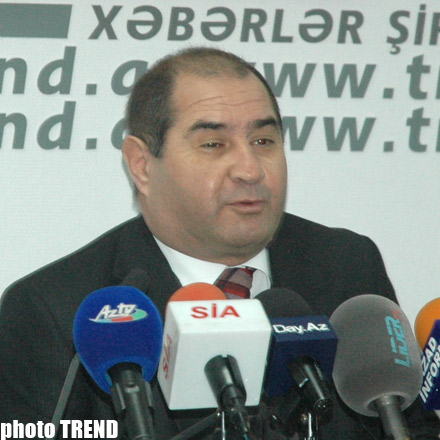Azerbaijan, Baku, Nov. 3 /Trend, M.Aliyev/
Armenians are an ethno-criminal network, imposing a threat to the whole world, and Armenia is a coordination center of the network, the director of the Center for Political Innovations and Technologies, a political scientist Mubariz Ahmedoglu said toa press conference held in the Trend international press center on Wednesday.
According to Ahmedoglu, this is testified by many facts, including the exposure of a syndicate that was created by 40 Armenians and appropriates money of the elderly and persons with disabilities from medical insurance from the insurance network "Medicare" in the U.S.; detention of cybercriminals of Armenian origin in the Netherlands, as well as the facts presented by the U.S. press that the Armenian president Serzh Sargsyan and ex-president Robert Kocharian had a connection with the head of the gang and the "thief in law" Armen Kazaryan.
An international criminal gang, consisting of the Armenians engaged in financial scams, was disclosed in the U.S. In order to receive insurance payments, the detainees have established a network of 118 non-existent health facilities in 25 states, and as a result of fraud, they have appropriated $163 million from the public budget. The gang was headed by Armen Kazarian, known under the pseudonym "Pzo".
Agents of the U.S. Federal Bureau of Investigation arrived in Yerevan to check criminal gang's ties with banks in Armenia.
"Criminal persons of Armenian origin have been able to establish control over political power in the country through their criminal networks in Armenia," said Ahmedoglu.
According to the political analyst, this situation explains Armenia's reluctance to retreat from its non-constructive position on the Nagorno-Karabakh conflict.
The conflict between the two South Caucasus countries began in 1988 when Armenia made territorial claims against Azerbaijan. Armenian armed forces have occupied 20 percent of Azerbaijan since 1992, including the Nagorno-Karabakh region and seven surrounding districts. Azerbaijan and Armenia signed a ceasefire agreement in 1994.
The co-chairs of the OSCE Minsk Group - Russia, France, and the U.S. - are currently holding negotiations to resolve the dispute.
Armenia has failed to implement U.N. Security Council resolutions stipulating the liberation of Nagorno-Karabakh and surrounding regions.






